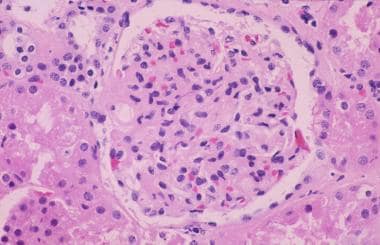Pig kidney transplant advance – no mention of pig viruses
The first man to receive a genetically modified kidney transplant from a pig has been discharged from hospital.
The 62-year-old was sent home recently, two weeks after the surgery at Massachusetts General Hospital (MGH).
Organ transplants from genetically modified pigs have had variable success in the past. But the success of this procedure so far has been hailed by scientists as a historic milestone in the field of transplantation.
The news was shared in a press release on Wednesday by MGH, which is Harvard Medical School’s largest teaching hospital in Boston.
However in the press release there was no mention of the transmission of pig viruses; a known risk of transplanting organs from pigs into humans (and all xenotransplantation) – see below.
Are pigs the future of organ transplants?
In the release, the hospital said the patient, Richard ‘Rick’ Slayman of Weymouth, Massachusetts, had been battling end-stage kidney failure (ESRF) and required a kidney transplant.
His doctors successfully transplanted a genetically-edited pig kidney into his body over a four-hour-long surgery on 16 March.
They said Mr Slayman’s kidney is now functioning well and he is no longer on dialysis.
In a statement, Mr Slayman said being able to leave hospital and go home was “one of the happiest moments” of his life.
Is it really new?
No. This area (called xenotransplantation) has been tried on and off since the early 1900s.
Austro-Hungarian surgeon Emerich Ullmann (1861-1937; originally from Pecs, Hungary), briefly worked with Louis Pasteur in Paris, on rabies antisera. Then in 1902, in Vienna, he carried out the first kidney transplant, in which a dog’s kidney was implanted into another dog’s neck. The kidney lasted for 5 days.
Following an unsuccessful attempt to transplant a pig kidney into a human patient, in the final stages of CKD, he ceased work in this area.
The French surgeon Mathieu Jaboulay (1860-1913), also documented kidney transplants from animals to humans. On 24th January, 1906, he transplanted the left kidney of a pig into the left elbow of a 48 year old female suffering from nephrotic syndrome.
However, the graft failed because of early vascular thrombosis.
Concerns re pig viruses and xenotransplantation
Xenotransplantation may be associated with the transmission of potentially zoonotic porcine viruses. Of special interest are the porcine endogenous retroviruses (PERVs) that are integrated in the genome of all pigs, which are able to infect human cells, and that cannot be eliminated by methods that other viruses can. More information here: Denner, 2022.
Other resources
History of pig and xenotransplantation
History of nephrology and renal transplantation timeline
History of renal transplantation
Parts of this page are based on a recent BBC article.
Last Reviewed on 26 June 2024

